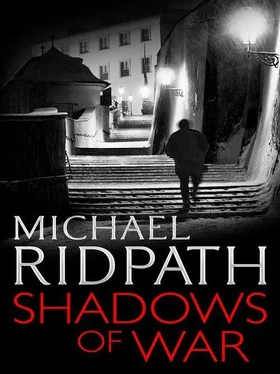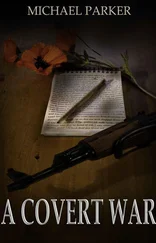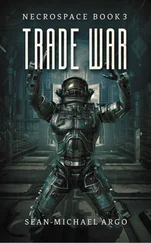‘ They think he did. But I know who really killed her.’
‘ You know?’
‘Yes.’
‘How?’
‘Because it was me.’
‘You!’ Alston struggled to sit up, but Constance pushed him down on his back and kissed him. At first he struggled, but then he responded.
She came up for air.
‘Why? How?’ Alston demanded.
‘When I telephoned you from Scheveningen you said I should stop Millie telling anyone what Theo had said about the Duke of Windsor. So I stopped her.’
‘I didn’t say to kill her!’
‘No. But it was pretty clear to me that that was the only way to shut her up, and I had to do it quickly, too, before she had a chance to talk to anyone. I don’t know what exactly is going on with the Duke of Windsor, but it must be desperately important. Isn’t it desperately important?’
‘Yes, it is,’ Alston admitted. ‘So what did you do?’
‘I told her that Theo wanted to meet her out on the dunes before dawn. I sneaked into the hotel kitchens and borrowed a knife. Then I got up even earlier than her, and hid in the bushes in the dunes.’
‘You stabbed her?’
‘Yes. And then I pretended to discover her. I left the knife in her chest, but I wiped the handle clean. To get rid of my fingerprints. And I told the police and the intelligence people that I had seen someone who looked like Theo leaving the dunes. I couldn’t sound too certain about it in case it turned out he could prove he was somewhere else, but it was enough to point them in his direction.’
‘Good God!’ said Alston. He wriggled out of Constance’s grasp and sat up, reaching for a cigarette.
‘Aren’t you pleased with me?’ Constance said, smiling.
‘No, of course I’m not!’ Alston snapped. ‘That’s murder!’
‘No, it’s not,’ said Constance. ‘This is war. People die. In horrible ways.’
‘On the battlefield.’
‘This is as important as the battlefield. More, probably. Millie’s death will have a bigger effect on who wins the war, or how the war ends, than a single soldier on the battlefield. Won’t it?’
‘Yes, but…’
‘But what? I did it for you, Henry.’
‘I didn’t tell you to kill her!’
‘No. But I read today’s Times and I was so proud. You can do it, Henry. You can join the government. And then you can become Prime Minister. Chamberlain is useless. Halifax is a coward. Oakford is a pacifist. Churchill is a warmonger. Mosley has some good ideas, but he’s a snake. You can do it, Henry; you can lead this country to a just peace and a glorious future. With no Jews.’
Alston could tell Constance really believed what she was saying. But she had killed a young woman, a woman her own age. Stabbed her in the chest. How had she done that?
Constance seemed to sense his unspoken question. ‘There are times when you have to act, to take steps. When doing nothing is the wrong thing to do.’
Alston remembered Constance talking about ‘taking steps’ before.
‘Have you killed anyone before, Constance?’
Constance gave a small smile. ‘I couldn’t possibly say.’
‘Who? Not your father?’
‘Of course not my father!’ Anger flashed across Constance’s face. ‘No. Definitely not my father.’
‘Who then?’
‘I can’t say,’ said Constance. ‘But I did the right thing then, and I’ve done the right thing now.’ She knelt naked next to Alston and stared deep into his eyes. ‘Can you forgive me, Henry?’ she said. ‘You have to forgive me.’
Alston’s brain was in turmoil. Millie’s murder horrified him, yet what Constance had done and the reason she had done it exhilarated him. She had ignored the petty constraints of petty English morality to act, to be bold. If ever there was a time for boldness it was now.
Her eyes were deep dark pools of intensity.
She put her hand between his legs. ‘Forgive me, Henry.’
Leiden, 23 November
Kriminalkommissar Wilhelm Neuser approached the porter’s lodge of the old Academy building in Leiden. It was just a few minutes past nine o’clock in the morning. He was a short, barrel-chested young man dressed in a scruffy overcoat, and had donned some clear-lensed spectacles. He spoke to the porter in slow, clear German.
‘Dr Fuhrmann of the University of Hamburg to meet Professor Hogendoorn.’ He handed the porter a passport bearing his photograph in the name of Dr Heinrich Fuhrmann. After some head-scratching and telephoning on the part of the porter, a man with a thick grey moustache appeared and introduced himself as the professor. He led Neuser up the stairs of the Academy building.
And then up some more stairs. And then up a steep spiral staircase and through a heavy oak door, which the professor unlocked.
They were in the attic of the old building. It was a large space, framed with a network of thick wooden beams; it was clear in the middle, but around the walls was stacked a jumble of ancient academic detritus: boxes, chairs, desks, boards, group photographs, even a couple of sculls. Thin grey light filtered in through narrow windows.
The professor switched on an electric light. ‘I plan to take Lieutenant von Hertenberg up here to meet de Lancey,’ he said in good German. ‘From their point of view it should feel safe; they are out of view and earshot of passers-by. But it is easy for you to hide somewhere and listen.’ The professor gave a little laugh.
Neuser scanned the attic. ‘This will work very well,’ he said.
‘I had my suspicions about Lieutenant von Hertenberg,’ the professor said. ‘And the Englishman he saw last time.’
‘You were quite right to warn us,’ Neuser said. ‘This meeting is unauthorized. I will listen to what they have to say, and if Hertenberg is indeed a traitor, I will tell my superiors back in Germany and he will be dealt with.’
‘And my part in this will be kept quiet, I trust?’ the professor said.
‘Naturally. Although I will make sure that when our two countries become closer, your loyalty to the Party will be remembered.’
Professor Hogendoorn giggled unnecessarily. ‘They won’t be here for another two hours. With all the comings and goings, no one will be surprised if the porter doesn’t remember seeing you leave, and a new man will come on duty at lunchtime. Probably best if you don’t go until after that. I’ll come up and fetch you about two o’clock.’
Neuser shifted some tea chests around near the entrance to the attic, and created a little nest for himself, from where he should be able to hear any conversation. He had been selected for the task because he spoke English, although his command of that language was not very strong and he was hoping that Hertenberg and de Lancey would speak in German.
He pulled out his weapon and fixed a silencer. He distrusted silencers, they were never really silent and they hampered accuracy. But it was unlikely that even if the students and professors below heard two muffled shots they would identify them as such. And accuracy shouldn’t be a problem at a range of two metres.
Neuser turned off the light, made himself comfortable and waited in the gloom.
Conrad strode rapidly from the station at Leiden to the Rapenburg Canal. He hoped the cynical Dutch detective was right about the evidence against Theo being fabricated. But who would do that and why? Conrad knew, because he had seen it, that although Holland was neutral, Dutch military intelligence had contact with their British counterparts. Maybe they were just trying to smooth over a tricky diplomatic incident. Or maybe they knew who really had killed Millie and were trying to cover it up. Why would they do that? Did Van know what had really happened? Did his father?
Читать дальше












